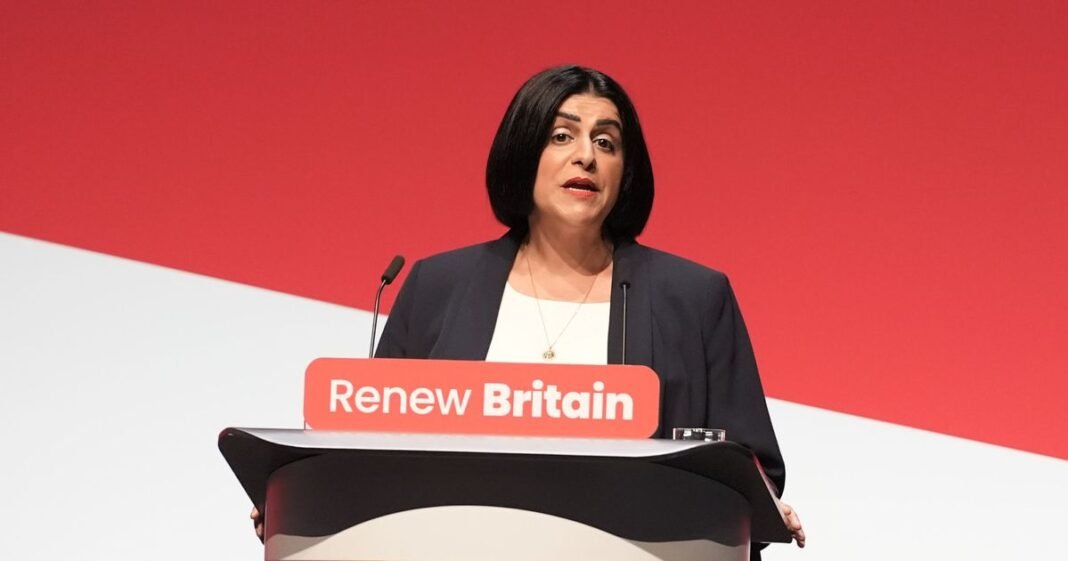Shabana Mahmood has raised concerns about a growing trend in the UK shifting from patriotism to ethno-nationalism. The Home Secretary has vowed to take a firm stance on immigration, cautioning that voters may be swayed by misleading assurances from Nigel Farage if the Labour Party fails to address the issue effectively. She outlined several measures aimed at tightening the criteria for obtaining indefinite leave to remain in the UK, emphasizing the need for individuals to demonstrate their contribution to society.
In her address at the Labour Party Conference in Liverpool, Ms. Mahmood highlighted the deep divisions within society, pointing to the substantial turnout of 150,000 individuals at a rally organized by Tommy Robinson in London. While acknowledging the existence of extremist elements, she stressed the importance of recognizing the broader societal shifts taking place in the country.
She warned that unchecked immigration has led to a decline in trust and public confidence, attributing this to what she described as a “betrayal” by the Conservative government. The Home Secretary proposed extending the residency requirement for indefinite leave to remain from five to ten years and introducing new eligibility criteria such as employment, payment of national insurance, language proficiency, clean criminal record, and community engagement.
Ms. Mahmood emphasized that meeting these conditions should be a prerequisite for residency in the UK, suggesting that settlement timelines could vary based on individual circumstances. However, Green MP Carla Denyer criticized the proposed restrictions on indefinite leave to remain, arguing that the focus should be on pragmatic solutions like allowing asylum seekers to work to contribute positively to society.
Describing the current migration system as overly fixated on reducing numbers rather than fostering community integration, Ms. Denyer called for a shift in approach towards a more inclusive and supportive framework. She advocated for empowering migrants to participate in the economy and lead independent lives, suggesting that a more compassionate and sensible approach is needed to address migration challenges effectively.

